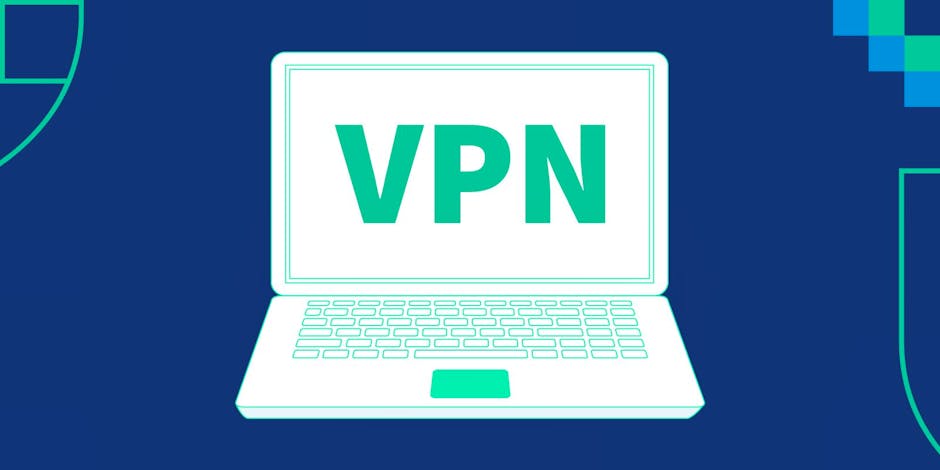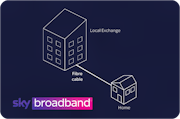What is a VPN and what does it do? | VPN questions answered
Want to know about VPNs? We’ve got you covered.

Staying safe online is a big must for a lot of people. One of the best ways to do so is by using a VPN. But exactly what is a VPN and how does a VPN work?
Let us answer those questions and some more most asked questions about VPNs and help you decide if you think a VPN is worth it for your devices.
What is a VPN & what does a VPN do?
A VPN, or Virtual Private Network, is a service that encrypts your internet traffic and routes it through a server in another location. This makes it appear as if you are connecting to the internet from that location, rather than your actual location.
There are many uses and benefits to this (more on them later), but one of the best reasons why many people choose to use a VPN while browsing online is it makes it difficult for third parties to track your online activity and steal your data.
While the general use of a VPN is the same, the different companies that provide the service can vary theirs to offer something more or better than their competitors, thus giving you more benefits to using their VPN.
What are the benefits of a VPN?
There are multiple benefits to a VPN. We just mentioned one about security, but there are others that can enhance your browsing experience and unlock more content for you.
Many people use a VPN for their streaming services such as Netflix. Every country has a different Netflix catalogue and one of the most common complaints people have online is the movies and shows that one country's Netflix has that theirs doesn’t. This is called ‘geo blocking’ and it features on many websites.
By using a VPN, you can set it to another country like the US and watch what they have to offer that the UK Netflix doesn’t have.
This also works for censorship, as some countries are quite restrictive on what websites the public can use. A VPN can bypass these restrictions and browse the internet freely.
A VPN is also good for browsing while using a public Wi-Fi connection. Public networks are often unsecured which means people with the know-how can intercept your internet traffic. A VPN can help prevent this from happening.
What devices can use a VPN?
Most VPNs are compatible with multiple devices and operating systems. VPNs are most common on PCs and laptops and are most compatible with the most popular and latest operating systems - Windows, iOS, Linux and Chrome OS.
Some services are also available as an application, which means you can secure your mobile, tablet or even smartwatch.
Will a VPN slow down my internet?
Unfortunately, a VPN will slow down your internet connection. Being that it is a connection to a Virtual Private Network, while you are browsing and have it enabled, your internet traffic goes through to the network, not directly from the source to your network.
Some VPNs can even slow down your speeds by over 50%.
But don’t look at this as a problem or a bad thing. May we remind you why it’s doing it - for your security and so you can access more and better content.
It may come at the cost of slower browsing speeds, but a VPN is worth it when you consider what you can get out of it.
Do I need a VPN?
You don’t expressly need a VPN. No browser is going to make you buy and download one and you don’t need it to browse websites that are accessible in your country.
But with all the benefits we’ve listed above and everything you should now know about them, you can see why they are a good thing to have on any device, especially those you browse the internet often.
Are VPNs free?
The simple answer to that is yes, but there is more to it.
You can get fully free VPN services that can be added as an extension on your computer or available as a free download on your mobile.
The problem with these ones is that they are rather limited in that you will have a cap on how much data you can use while connected, you won’t be able to connect to many servers (if any), and you won’t be able to use it on multiple devices. They also are not likely to be the most secure.
The best VPN services offer premium plans where for a fair price, you can have unlimited data meaning endless usage, it can be used on as many devices as you want, you have access to all their servers worldwide, you’ll be protected by the best and latest tech, and possibly many more benefits.
Better yet, some VPNs offer a free trial or a 30-day money-back guarantee, so you can try out their service without fully committing right away.
What is the best VPN?
There are various VPN services vying to be labelled the best, with some being better at certain things than others.
You may have already heard of NordVPN, ExpressVPN, ProtonVPN or Surfshark. These are amongst the best VPNs you can get a hold of.
- NordVPN is the best for security and is one of the best speeds, meaning you won’t be affected as badly by performance on streaming sites in particular. They also have more than 5,500 servers worldwide in 60 countries, meaning you have lots of options to choose from.
- ProtonVPN is very similar to NordVPN in every way. Although it offers fair fewer servers, it does feature the latest VPN Accelerator technology and they have a free version of their service with unlimited data usage, something that NordVPN doesn’t offer.
- Surfshark is fantastic value and offers just as good, if not better, speeds than NordVPN. The value for money alone makes this a great option.
- ExpressVPN is available at a slightly higher price, but it is a quality service that is brilliant for first-time VPN users. It has great security and encryption, has over 3200 ultra-fast servers in 94 countries, and boasts 24/7 customer support.
You can’t go wrong with any of these four options, so look into getting your VPN now and start browsing and streaming securely.
Find a Deal
Enter your postcode to see the latest offers in your area.
Latest News
Featured Guides
Broadband Speed Test
Find out whether you could be getting faster home broadband speeds. Our speed test will check your current broadband and let you compare with other speeds in your area.
Test your broadbandBroadband Usage Calculator
Answer a few quick questions and our broadband usage calculator will give you a data estimate for your household. Using this we'll recommend the best kind of deal for you.
Calculate.jpg)












